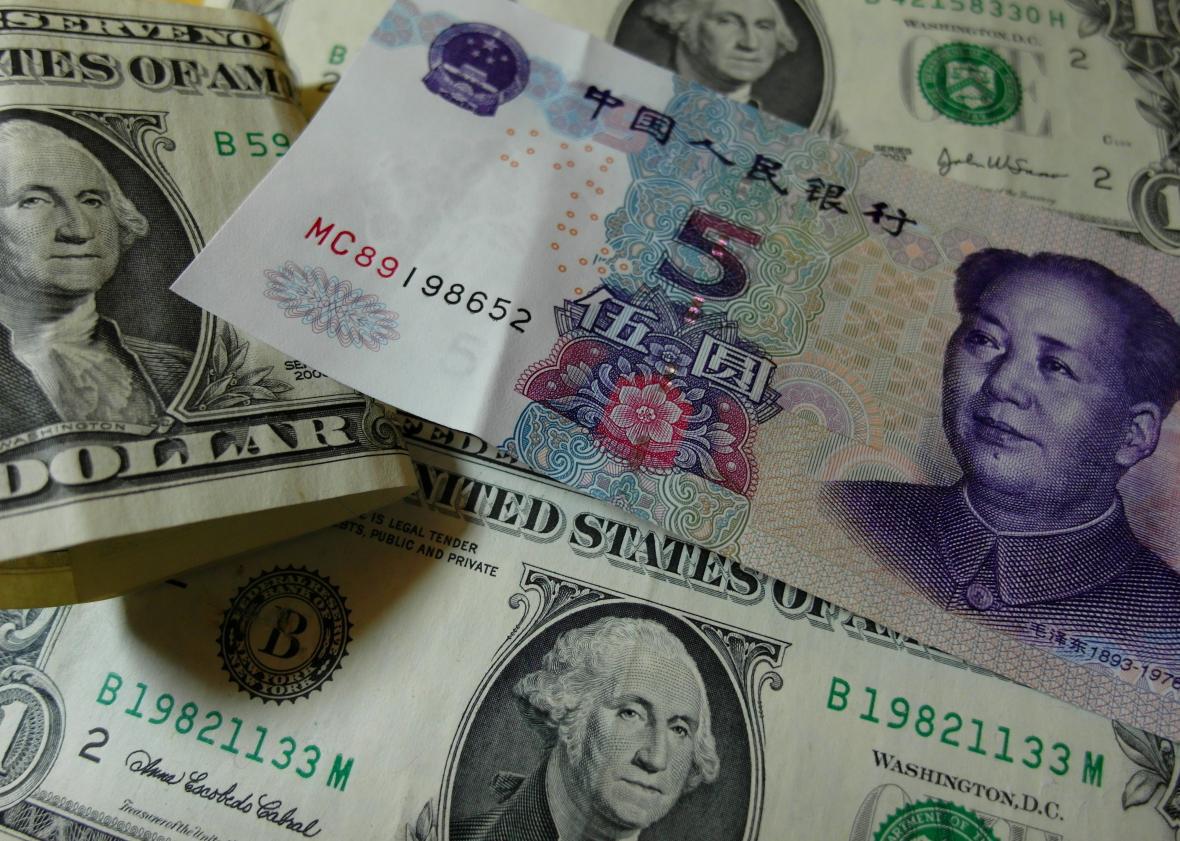Fearmongering politicians and writers love to wave around the idea that China’s government could one day wage war on the American economy by simply selling off its massive stockpile of U.S. Treasury debt. Sometimes, their message is a little more nebulous than that—the famous Chinese professor ad from the 2010 midterm elections merely hinted that we’d end up being enslaved to Beijing thanks to our borrowing habits while eliding over the details of exactly how that might come to pass. But the basic notion that China has financial power over the U.S. simply because it’s one of our top lenders is both oft-repeated and irritatingly sticky: Last month, the Pew Research Center reported that 89 percent of Americans thought “the large amount of American debt held by China” was either a somewhat or very serious problem.
Well, as the Wall Street Journal notes Wednesday, China has in fact started selling off an unprecedented amount of U.S. government bonds. And it’s mostly serving as an illustration of why there’s no real reason to fret about our debt to Beijing.
Let’s start with a little review of U.S.-Sino paranoia. The treasuries-as-financial-weapon-of-mass-destruction theory goes something like this: China currently holds more than $1 trillion worth of U.S. government bonds, equal to about 20 percent of all treasury debt owned by foreigners. If one day the Communist Party leadership felt like starting some havoc, or just simply lost confidence in Washington’s ability to or desire to repay its obligations, it could liquidate that stash, driving down treasury values and forcing the U.S. government to offer sky-high interest in order to borrow (as treasury prices go down, rates go up).
Now here’s what’s going on in the news: After accidentally terrifying investors this summer by slightly devaluing its currency without warning, China has been trying to prevent the yuan from collapsing even further against the dollar by, well, selling off treasuries. The way this works is simple. The country’s central bank unloads some its bond holdings for dollars, then it uses said dollars to buy yuan, thereby pushing down the value of the greenback and pushing up the redback. In August, it reportedly spent about $120 billion to $130 billion intervening this way. At first, there was some worry that all this selling might indeed end up sending U.S. interest rates higher, acting as a sort of reverse monetary stimulus. But the bond markets seem to have largely reacted with a big ¯\_(ツ)_/¯, largely because the treasury market is enormous, and with the global economy in a shaky spot, there are ample buyers out there looking to purchase American government debt as a relatively safe place to put their money.
All of this drives home a very simple point that people who worry about our debt to China tend to overlook: Buying and selling treasuries is how Beijing manages its delicate exchange rate, which is essential to keeping the country’s all-important exports flowing. And if it were to actually dump enough of its treasury holdings to cause trouble, the likely end result would be a less valuable U.S. dollar, which would mean fewer Americans buying goods made in China. That would especially be the case if the U.S. Federal Reserve responded by printing money to buy up whatever bonds China sold in order to keep interest rates from jumping, which in this extended hypothetical, is a pretty likely scenario. Beijing would be cutting off its nose to spite its face, which isn’t typically how one subjugates a geopolitical rival.
